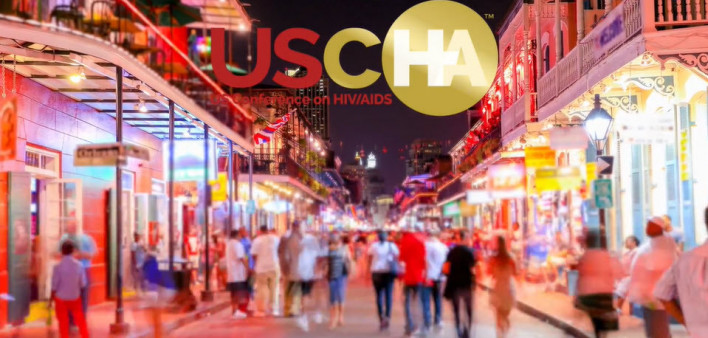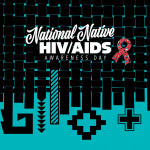The 2024 United States Conference on HIV/AIDS website has launched! We are now accepting your abstracts, registrations, and scholarship applications. Join us September 12-15, 2024 in New Orleans at the Hyatt Regency.
This year’s theme is “So goes the South…So goes the epidemic”. Because the southern states continue to be disproportionately impacted by HIV, it is impossible to end the national epidemic without a national prioritization of the south. Black America shoulders the greatest burden of HIV in the South and entire country. At the same time, only 14% of people on HIV PrEP are African American due to a number of systemic factors that must be addressed.
Puerto Rico and the Love Letter to Black Women taught our movement about the importance of leading with authentic voices from the community. So, this year’s meeting will center the stories of those living with and impacted by HIV in the South. It will be a platform to celebrate the transformative work led by southern communities, and share experiences of overcoming adversity while fighting systemic racism and numerous factors that drive disparities and injustice.

Dafina Ward, JD, Executive Director, Southern AIDS Coalition
To tell the unique stories of HIV in the South, NMAC has proudly invited Dafina Ward, JD, Executive Director, Southern AIDS Coalition to chair the Southern Advisory Committee. In other words, we want to ensure that Southerners are telling the South’s story. The truth and challenge for our work is how to engage people and communities most in need of HIV services? If we really want to end the HIV epidemic in America, particularly through these difficult political times, then we must center their solutions in their language, values, culture, and leadership. As we have seen too often, one size does not fit all.
USCHA understands the South is not monolithic. The conference will also work with the Latino Commission on AIDS to host a plenary that tells the stories of Mexican Americans/Chicanos living in Texas and other southern states. We also understand that the Hispanic/Latinx community is also not monolithic. How we reach Mexican Americans is different from how to reach Puerto Ricans or other Hispanic/Latinx communities. Our tough lesson learned is that superficial solutions don’t work. Just translating materials from English into Spanish is not enough. Just making PrEP available does not mean this important biomedical solution reaches everyone in need.
Coming back to the HIV impact on Black communities, tomorrow is National Black HIV/AIDS Awareness Day (NBHAAD). It is not enough to just acknowledge that HIV disproportionately impacts Black America, we need real solutions and the money to implement programs that work. In a critical election year, I worry because HIV sits at the intersection of race, gender, gender identity, sexual orientation, geography, drug use, and too many other challenges. Some members in Congress are gunning to take away vital federal support needed to end the HIV epidemic and programs supported by the Minority AIDS Initiative. NBHAAD is a call to action for racial justice, equality, and access to HIV services for people living with HIV and people on PrEP.
There is much to accomplish this year. I hope to see you at USCHA in New Orleans!
Yours in the struggle,
Paul Kawata








Comments
Comments